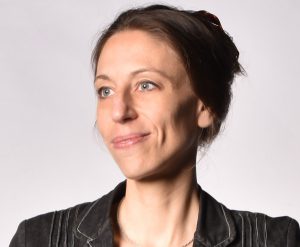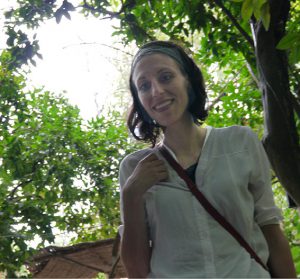 HOYNG, Rolien, Assistant Professor
HOYNG, Rolien, Assistant Professor
The first time I stayed in Hong Kong was in 2003. I was a student from the University of Amsterdam, the Netherlands, and I came to the University of Hong Kong through the exchange program. Since this was right before social media took off, going away still meant being away, that is to say, being disconnected from family and friends. Having no idea what to expect at the other side of what felt like a wider world back then, I was afraid I’d be lonely. So I shipped about 15 kilos of literature books per postal mail in advance. The entire box had to be shipped back to the Netherlands, unopened, by the end of my stay.
After my return from Hong Kong, I went on a second exchange, this time to Istanbul in Turkey. I stayed there for a year and learned Turkish. It was the beginning of many years of research on Turkey. Then I moved to the USA to continue my post-graduate studies. Hong Kong became more and more like a vague dream, though Turkey stayed with me in concrete ways through research and … marriage (yeah, never go on an exchange if you are not prepared to fall in love). By the time I finished my PhD, there was a chance to return to Hong Kong, which I seized wholeheartedly. So now I really have three places to call home: the Netherlands, Turkey, and Hong Kong.
It seems to befit me to have multiple homes and always move in-between them. I’m a restless soul yet made peace with my restlessness, if that makes sense. I also moved between several academic disciplines and hence I hold four different post-graduate degrees, which seems rather excessive. I always tend to get attracted to something new. That’s how somebody who originally studied Comparative Literature ends up researching digital technology.
 My current project explores digital technology and culture in Hong Kong and Istanbul. I am interested in how digital technology meets cultural aspirations and meanings. For instance, I explore the concept of “openness” in relation to digital data and information in Hong Kong. I also look at “accidentalness” and technological breakdown. In this regard, I examine e-waste (electronic waste) in Hong Kong, planned obsolescence, and informal recycling. Besides academic research, I’m working with an interdisciplinary team on a more practical intervention and hopefully you will hear more from us soon… Here [ https://www.opendemocracy.net/murat-es-rolien-hoyng/censorship-and-conspiracy-theories-rule-day-in-post-election-turkey ] you can find a short piece written for the general public on conspiracy theory on the internet in Turkey.
My current project explores digital technology and culture in Hong Kong and Istanbul. I am interested in how digital technology meets cultural aspirations and meanings. For instance, I explore the concept of “openness” in relation to digital data and information in Hong Kong. I also look at “accidentalness” and technological breakdown. In this regard, I examine e-waste (electronic waste) in Hong Kong, planned obsolescence, and informal recycling. Besides academic research, I’m working with an interdisciplinary team on a more practical intervention and hopefully you will hear more from us soon… Here [ https://www.opendemocracy.net/murat-es-rolien-hoyng/censorship-and-conspiracy-theories-rule-day-in-post-election-turkey ] you can find a short piece written for the general public on conspiracy theory on the internet in Turkey.
I hope that students in my classes feel invited to explore: don’t think there are areas of inquiry you are necessarily barred from, follow your curiosity, and be open to new topics, approaches, and views. Perhaps the best way to get an A is to not care much about your grade at all, but to figure out why the material matters to you, or how it speaks to you. And also, don’t be afraid to think differently or raise a question to which there is no easy answer, one that leaves you perplexed. The best thing about teaching is seeing students develop creative projects in which they take what you tried to teach them in unexpected directions. If I can invent one god to revere, it would be the God of Creativity. Any idea what s/he/it looks like?


 Follow
Follow